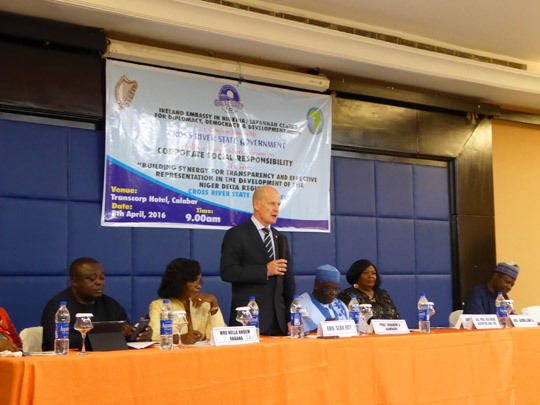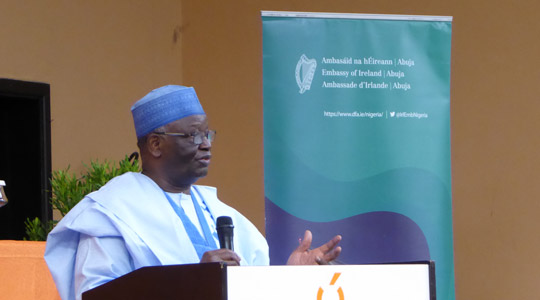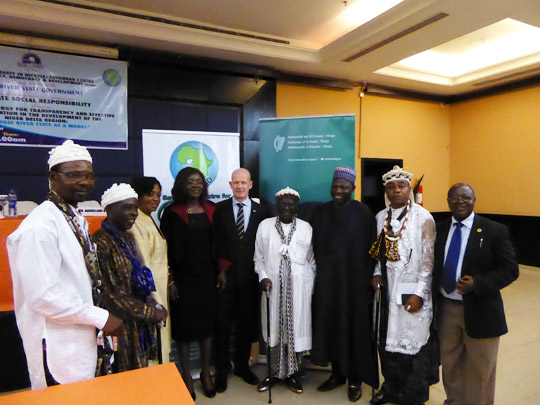Embassy commemorates Roger Casement's time in Calabar
To commemorate Roger Casement’s time in Calabar, and to acknowledge his legacy as a humanitarian in Africa, Embassy Abuja supported a consultative workshop on the impact of foreign (and local) investment on indigenous communities. The objective was to seek agreement on three broad principles: the right to consultation by communities, transparency of all transactions and independent monitoring.

As part of the Ireland 2016 programme, Embassy Abuja supported a consultative workshop in Calabar to commemorate the work of Roger Casement who worked in the British Consulate in what was then Old Calabar in the Oil Rivers Protectorate, modern day Cross Rivers State from 1891-1895. While Casement is celebrated for his humanitarian work in Congo and the Amazon, there is evidence that during his time in Calabar, he intervened on behalf of local communities on a number of occasions and arranged for the first public water supply to be funded with the two “Casement Tanks” still in place. Casement also prepared some of the earliest maps of Oil Rivers Protectorate.
The Embassy partnered with the Savannah Centre for Diplomacy, Democracy and Development for this event. The Savannah Centre is a Nigerian think-tank and NGO founded by former Foreign Minister and Under Secretary General of the United Nations for Political Affairs, Professor Ibrahim Gambari. Our objective was to test an approach in Cross Rivers State which could be monitored with a view to providing lessons for other States.

Representatives from five different local government areas participated in the workshop as well as representatives of local investors. The Governor was represented by the most senior official, the Secretary to the State Government.
Professor Gambari delivered a keynote lecture on the history of exploitation of natural resources in different countries and the impact on local communities. Gambari also paid tribute to the legacy of Roger Casement.
The workshop concluded after two days of deliberations and the negotiation of a communiqué.

Civil society leaders responded positively to the communiqué which helped to define the core issues common to a wide array of conflicts. The text included the basic principles of consultation, transparency and independent monitoring and was signed by the leaders of the five local Government areas, and witnessed by the Savannah Centre, Ambassador Hoy and the Secretary to the State Government. Savannah Centre will now monitor the framework for twelve months before preparing a final report that will distil lessons for further consideration by other States across the Niger Delta.

